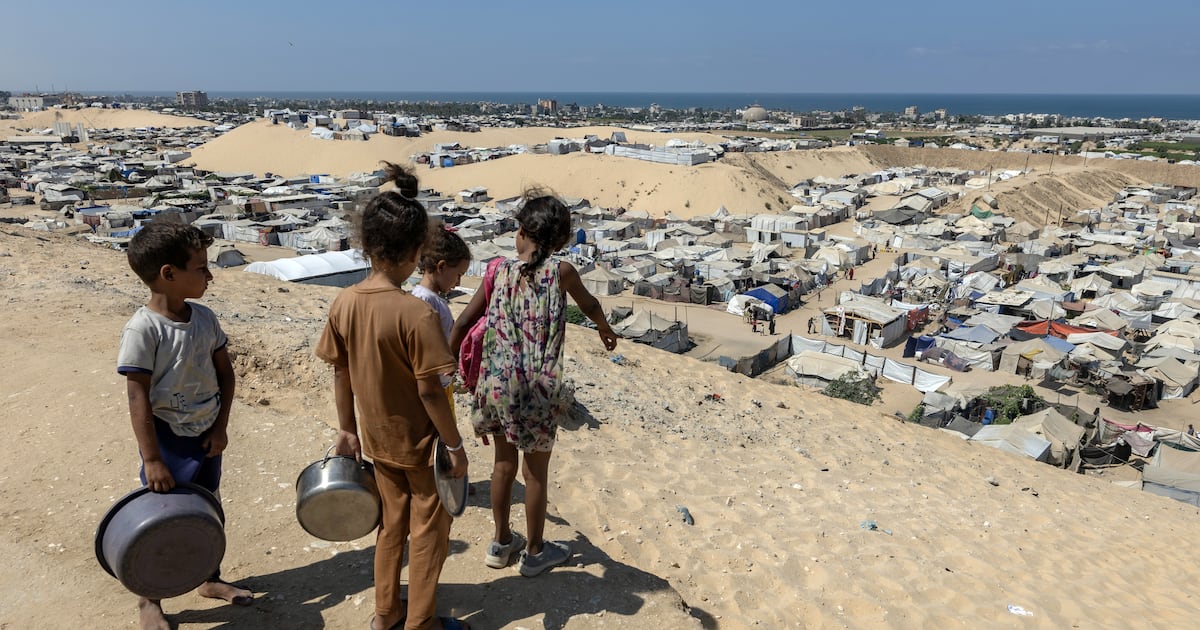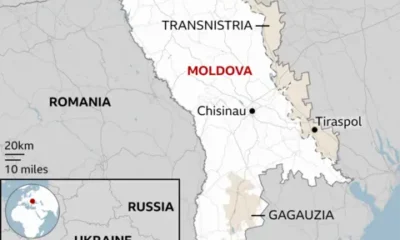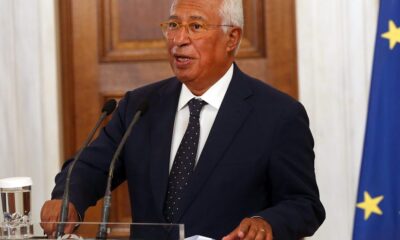Opinion
Patrick Smyth: Denial has become a standard tool of strongmen leaders but the truth will out

Read more on post.
“Denial ain’t just a river in Egypt,” is a quote widely attributed to Mark Twain. True: denial is the essential and ubiquitous prop of autocratic regimes the world over.
“With the onset of deliberate deadly starvation,” writes dissident Israeli journalist Gideon Levy in Haaretz, “there was no alternative but to turn to denial, no less loathsome than denial of the Holocaust.”
“This attitude has become part of the mainstream. Descriptions of deliberate starvation in Gaza are an anti-Semitic conspiracy. If there is hunger, talk to Hamas.
“There is something more despicable in this than evading blame: contempt for the victim, for the child dying in the arms of his mother, who is carrying him, crying. Telling her that there is no deliberate starvation is tantamount to deriding her in her pain.”
Israeli spokesmen insist that any food shortages are caused by Hamas and/or the UN itself. Israeli prime minister Binyamin Netanyahu has denied starvation in Gaza, accusing the UN of spreading “lies”. Aid blockade, what aid blockade?
An important independent UN report has now accused Israel of genocide. Its lead author, Navi Pilay, recorded an important element of its findings: “Our analysis found that starvation has been used as a weapon of war.” The report says the famine is “entirely man-made”, with half a million people already facing “catastrophic conditions characterised by starvation, destitution and death”.
Denial is standard Israeli operating procedure, just as it is with Donald Trump, who is systematically eviscerating independent sources of data embarrassing to him and allies.
Over the last decade famine, crucially man-made and man-sustained famine, has made a global comeback: notably hunger as a deliberate weapon of war. From Sudan to Afghanistan, Yemen, Ethiopia and Gaza the numbers dying are escalating. This surge has been enabled by weakening global humanitarian responses and sharply reduced aid budgets, not least from the US.
But quantifying that rise in misery has been made significantly more difficult by the aid cuts that closed the US’s Famine Early Warning Systems Network, which has long been at the forefront of famine data collection.
The easiest way to solve a problem, Isaac Asimov once wrote, is to deny it exists.
But the truth will out. An Israeli public largely willing to turn a blind eye to 65,0000 Palestinian deaths in Gaza is awakening with horror to its growing sense of moral complicity in famine. Pictures of starvation are flooding TV screens and newspapers around the world. Footage of emaciated parents carrying the lifeless corpses of their children, of hundreds of desperate young men cut down as they try to access food at Israeli-controlled distribution points, is everywhere.
[ How the IPC global hunger monitor determines famineOpens in new window ]
In Sudan, far away from the world media limelight, man-made famine caused by the country’s warring factions – and exacerbated by international complicity with them – the suffering exceeds that in Gaza. Fifteen million have been displaced and, according to the World Food Programme, some 638,000 people are experiencing “catastrophic hunger”. Nearly half the population faces acute food insecurity.
[ Deaths from famine are rising from Sudan to Gaza as leaders use food as a weaponOpens in new window ]
In December, Gen Abdel Fattah al-Burhan, leader of one faction and de-facto president of Sudan, denied the existence of widespread hunger. “What is being circulated about famine is pure fabrication and intended to interfere in Sudanese affairs.” Both factions have denied access to the starving to the UN and NGOs.
Shockingly, the politics of hunger denialism are not the preserve of war zones. In the US, Trump has aggressively contested government data that he thinks cast his policies in a bad light. He recently fired the independent head of the Bureau of Labor Statistics for promoting “rigged” figures. He continued in the same vein last week by permanently closing the government’s annual report measuring household hunger, the Agriculture Department’s Household Food Security in the US (HFSUS). It is one of the most important objective measures of poverty in the US and expected to cast deeply embarrassing light on the president’s much-vaunted “Big Beautiful Bill”, notably its brutal cut in food stamps while axing taxes for the very rich.
The most recent HSFUS found that in 2023, 13.5 per cent of households, a total of 47 million people, were food insecure – what this means is that during some portion of the year, not every member of such households had access to enough food for a healthy lifestyle. The Bill, signed into law in July, cut $187 billion from food stamps over the next decade, with an estimated four million, or 10 per cent of recipients, losing some or all of their assistance.
In some of the poorest parts of America, mostly rural areas in the south, food insecurity among children is as high as 48 per cent while roughly a quarter of black Americans experience it compared with 10 per cent of white non-Hispanics. Denial will not change the reality.











